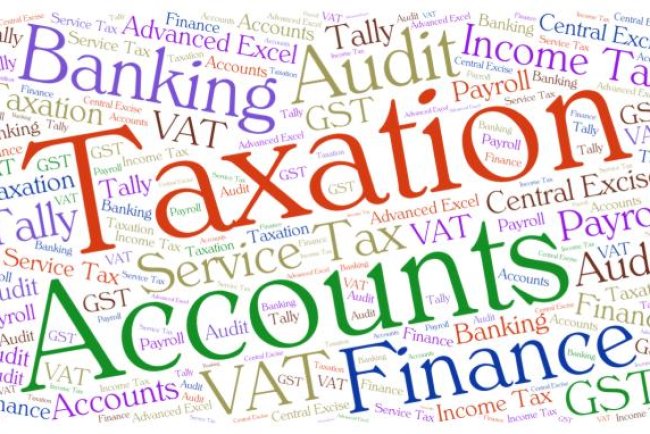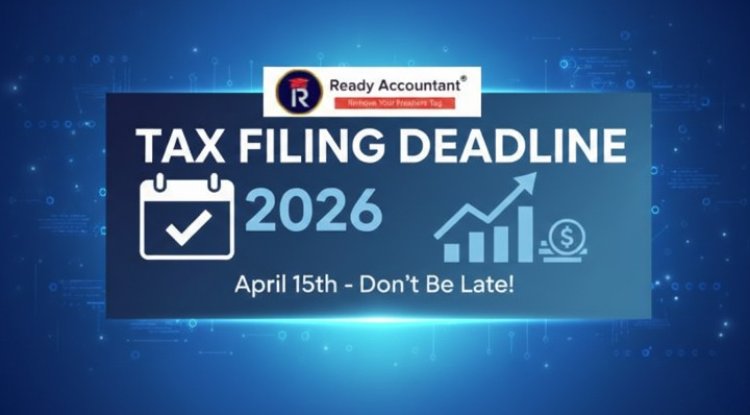Income Tax Audit Report Due Date
The income tax audit report due date is a critical compliance requirement under Section 44AB of the Income Tax Act. For Assessment Year 2025-26, the due date is 30th September 2025 (subject to CBDT extensions). Businesses with turnover above ₹1 crore, professionals with receipts above ₹50 lakhs, and certain presumptive taxation cases are required to file audit reports. Missing the due date can lead to penalties up to ₹1.5 lakhs, disallowance of deductions, and increased scrutiny. Timely filing ensures smoother ITR processing, credibility, and compliance. Leveraging professional skills like Certified Corporate Accounting, SAP FICO (Finance & Controlling), and Taxation (Income Tax & GST) helps businesses stay audit-ready and avoid last-minute hassles.

Filing income tax is not just about paying taxes on time—it is also about complying with the rules and regulations laid down under the Income Tax Act of 1961. One of the most important compliance requirements for businesses, professionals, and certain individuals is the submission of the Income Tax Audit Report. Missing the income tax audit report due date can lead to penalties, interest, and unnecessary scrutiny by the tax authorities.
In this article, we will explain the importance of income tax audit reports, the due dates, penalties for delays, and best practices to ensure timely compliance. We will also touch upon how professional skills like Certified Corporate Accounting, SAP FICO (Finance & Controlling), and expertise in Taxation (Income Tax & GST) can help individuals and businesses manage their tax audits effectively.
What Is an Income Tax Audit Report?
An Income Tax Audit is an examination of books of accounts carried out under Section 44AB of the Income Tax Act. The purpose is to ensure that taxpayers maintain proper records, present accurate financial statements, and comply with tax laws.
The outcome of this audit is documented in a prescribed format known as the Income Tax Audit Report, which must be filed electronically with the Income Tax Department. This report is usually prepared and certified by a Chartered Accountant (CA).
Applicability of Income Tax Audit
Not every taxpayer is required to get an audit done. The applicability depends on turnover, gross receipts, and profits.
-
Businesses
-
If turnover exceeds ₹1 crore in a financial year.
-
Threshold increases to ₹10 crore if at least 95% of transactions are digital.
-
-
Professionals
-
If gross receipts exceed ₹50 lakhs in a financial year.
-
-
Presumptive Taxation Scheme (Sec 44AD, 44ADA, 44AE)
-
If the taxpayer declares income less than the prescribed percentage of turnover, and the total income exceeds the basic exemption limit.
-
Income Tax Audit Report Due Date
The due date for filing the Income Tax Audit Report is typically linked to the Income Tax Return (ITR) filing deadline for audit cases.
-
For taxpayers required to get their accounts audited, the due date for submitting the Income Tax Audit Report is September 30 of the assessment year.
-
However, the ITR filing due date for audit cases is usually October 31 of the assessment year.
???? For Assessment Year (AY) 2025-26, the income tax audit report due date is expected to be 30th September 2025, unless extended by the Central Board of Direct Taxes (CBDT).
Penalties for Missing the Income Tax Audit Report Due Date
If a taxpayer fails to submit the audit report within the prescribed time, the following consequences may arise:
-
Penalty under Section 271B
-
0.5% of total turnover or gross receipts.
-
Maximum penalty: ₹1,50,000.
-
-
Disallowance of Deductions
-
Certain deductions or exemptions may be disallowed.
-
-
Increased Scrutiny
-
Delayed compliance increases the chances of receiving notices from the Income Tax Department.
-
Extension of Income Tax Audit Report Due Date
Over the years, the CBDT has often extended the due date for filing audit reports due to technical glitches on the portal, pandemic-related issues, or requests from professional bodies. Taxpayers should always keep track of notifications issued by the CBDT to stay updated on any changes.
Importance of Filing Audit Reports on Time
Timely filing of the Income Tax Audit Report has multiple benefits:
-
Avoids penalties and interest.
-
Helps in the smooth processing of ITR.
-
Reduces the chances of scrutiny or notices.
-
Builds credibility for loans, tenders, or business expansion.
Best Practices to Ensure Timely Filing
-
Maintain Digital Records – Ensure that invoices, bank statements, and ledgers are updated regularly.
-
Use Accounting Tools – Applications like SAP FICO (Finance & Controlling) can simplify bookkeeping, financial reporting, and compliance tracking.
-
Hire Professionals – Opting for Certified Corporate Accounting professionals ensures accuracy in financial statements and audit readiness.
-
Stay Updated on Taxation (Income Tax & GST) – Knowledge of ever-changing tax rules helps in avoiding last-minute errors.
-
Plan Early – Don’t wait for the deadline; coordinate with your Chartered Accountant at least three months before the due date.
Role of Professional Skills in Income Tax Audit
Today, businesses require skilled professionals to manage taxation and audits effectively. Here’s how specialized skills can help:
-
Certified Corporate Accounting
-
Ensures accurate maintenance of financial statements.
-
Prepares businesses for both statutory audits and tax audits.
-
-
SAP FICO (Finance & Controlling)
-
Integrates financial accounting and controlling processes.
-
Helps organizations manage compliance, reporting, and internal audits efficiently.
-
-
Taxation (Income Tax & GST)
-
Deep knowledge of taxation rules ensures correct filing of tax audit reports.
-
Minimizes risks of penalties and disputes with authorities.
-
By investing in professional training and accounting software, businesses can reduce audit stress and focus on growth.
Recent Updates on Audit Report Filing
-
The government is pushing for faceless compliance and reducing human intervention in tax matters.
-
The income tax e-filing portal has been upgraded for better upload and verification of audit reports.
-
More businesses are adopting digital accounting systems for real-time compliance.
Conclusion
The income tax audit report due date is one of the most crucial compliance deadlines for businesses and professionals in India. Missing it can result in heavy penalties, disallowances, and scrutiny from the Income Tax Department.
To avoid complications, taxpayers must:
-
Stay updated with the latest due dates and CBDT notifications.
-
Keep records up to date.
-
Rely on experts skilled in Certified Corporate Accounting, SAP FICO (Finance & Controlling), and Taxation (Income Tax & GST).
Timely filing not only ensures compliance but also builds financial credibility, paving the way for long-term success
What's Your Reaction?




















